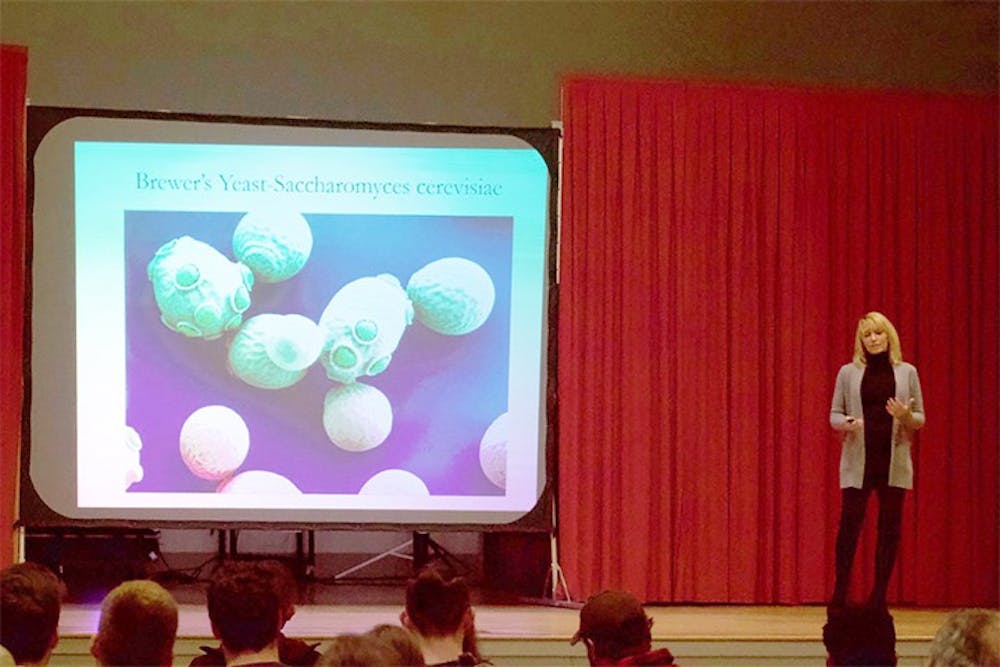Shippensburg University held its first session of the Brew Science Speaker Series on Thursday with professor of geography and earth science Alison Feeney, who spoke about the history of breweries and some of Pennsylvania’s breweries.
Feeney has spent the last 10 years looking at the social, technological and economic history of beer.
Beer has been around since the beginning of agricultural societies. All early writings show the importance of beer and that people used to be paid with beer.
Monasteries developed brewing as a science and recorded the ingredients. Because of this, most breweries have names that are dedicated to monks, Feeney said.
In 1516, Germany passed the first purity law stating that it was illegal to make beer with anything but barley, yeast, water and hops. People knew if they drank beer they would not get sick. Most people drank beer instead of water because the water quality was so poor.
“I could go on probably a couple of hours about the innovations that breweries created. We get pasteurization, [which] obviously has a huge impact on all of our food and healthcare systems,” Feeney said.
When traveling to America, most ships carried more beer than water, and breweries were one of the first buildings built by settlers. Once in America, most people brewed from home because they still had contaminated water, Feeney said.
Breweries became the central hub of colonial life. Technology led to the mass production of beer. In 1878, Anheuser-Busch shipped kegs globally with refrigerated box cars. In 2016, Pennsylvania had 282 craft breweries and made 3.7 million barrels of craft beer.
“Pennsylvania is really ideally suited for agritourism. We are located very close to some of the major population centers,” she said.
These local breweries support local businesses, build and give back to the community, support neolocalism and share culture and history.
“That’s what really excites me about craft breweries, is that ability to add to that community,” Feeney said.
Most local breweries are expanding and hiring. SU is trying to expand brewing education with the Brew Science Speaker Series.
“We are trying to offer a variety of different types of courses. We’re going to have more seminar speakers, tours and a variety of opportunities.”



The Slate welcomes thoughtful discussion on all of our stories, but please keep comments civil and on-topic. Read our full guidelines here.